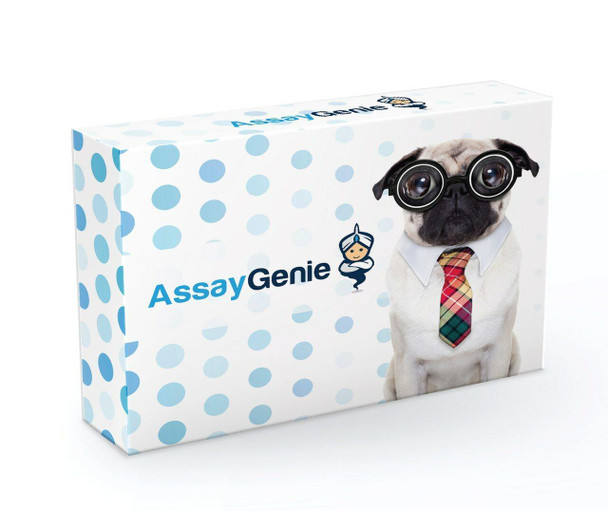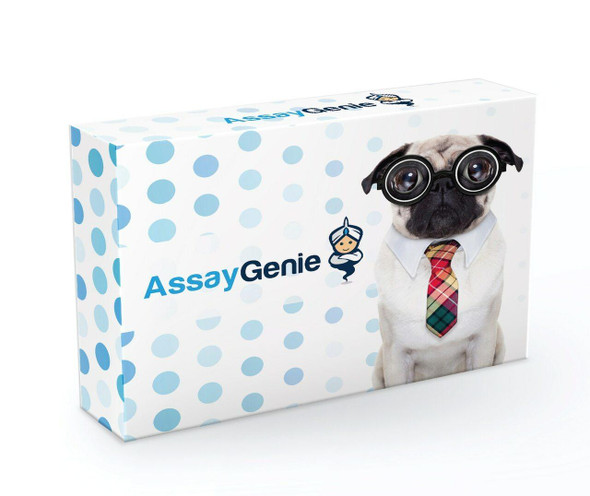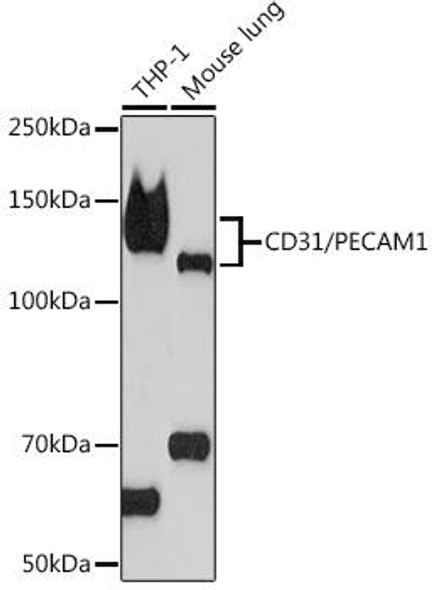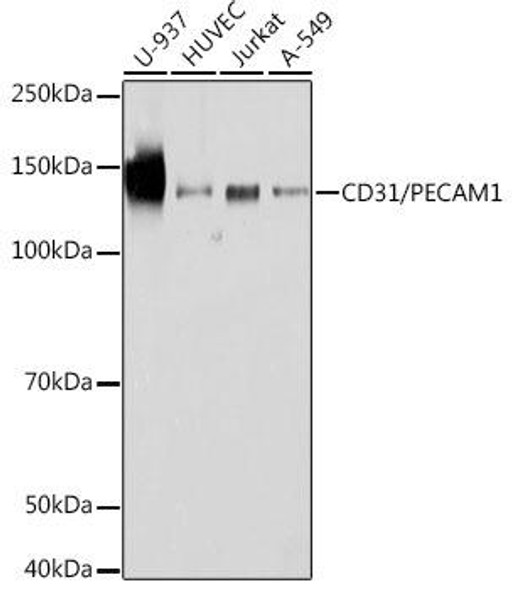Description
CD31 FITC Monoclonal Antibody [hCD31] (CPAB0296)
The CD31 FITC Antibody (CPAB0296) is a valuable tool for researchers studying CD31, a cell surface glycoprotein that plays a crucial role in various physiological processes, including regulation of immune responses and angiogenesis. This polyclonal antibody, derived from rabbits, is highly specific to human samples and is validated for use in flow cytometry applications.With its ability to bind specifically to the CD31 protein, this antibody enables researchers to accurately detect and analyze CD31 expression in different cell types. This makes it an ideal choice for studies in immunology, vascular biology, and cancer research, as CD31 is known to be involved in processes such as leukocyte migration and tumor angiogenesis.
By using the CD31 FITC Antibody in their research, scientists can gain valuable insights into the role of CD31 in various diseases and conditions, potentially leading to the development of targeted therapies for cancer, inflammatory disorders, and other related health issues. Its high specificity and reliability make it a valuable addition to any lab conducting investigations on CD31 and its associated pathways.
| Product Name: | CD31 FITC Antibody |
| Product Sku: | CPAB0296 |
| Size: | 500μg |
| Host Species: | mouse |
| Immunogen: | Enriched human platelets |
| Clone: | hCD31 |
| Reactivity: | Human |
| Applications: | Immunohistochemistry, Flow Cytometry |
| Purification Method: | Protein A |
| Isotype: | IgG1 |
| Background: | CD31 is a glycoprotein expressed on endothelial cells, platelets, macrophages and Kupffer cells, granulocytes, T / NK cells, lymphocytes, megakaryocytes, fibroblasts, osteoclasts, neutrophils. In humans, the gene encoding CD31 is found on chromosome 17. CD31 is a cluster of differentiation molecule. It is also called PECAM-1 for platelet endothelial cell adhesion molecule. It plays a key role in removing aged neutrophils from the body. Both the neutrophil and the macrophage express CD31 on their membranes, and during the testing process, these CD31 molecules bind the two cells together. If the neutrophil is healthy, it will send a signal to the macrophage, and the CD31 molecules will detach. CD31 is also expressed in certain tumors, including epithelioid hemangioendothelioma, epithelioid sarcoma-like hemangioendothelioma, other vascular tumors, histiocytic malignancies, and plasmacytomas. It is rarely found in some sarcomas and carcinomas. |
| Synonyms: | Platelet endothelial cell adhesion molecule, PECAM-1, EndoCAM, GPIIA', CD31 antigen, PECAM1, CD31. |
| Storage Buffer: | In lyophilized form, for long periods, store at 4°C in a dry environment. After reconstitution, if not intended for use within a month, aliquot and store at -20°C. |







![FITC Anti-Mouse CD31 Antibody [390] (AGEL1918) FITC Anti-Mouse CD31 Antibody [390] (AGEL1918)](https://cdn11.bigcommerce.com/s-h68l9z2lnx/images/stencil/590x590/products/22449/606861/fitc-anti-mouse-cd31-antibody-390-agel1918__24507.1707499377.jpg?c=2)
![FITC Anti-Mouse CD31 Antibody [390] (AGEL1909) FITC Anti-Mouse CD31 Antibody [390] (AGEL1909)](https://cdn11.bigcommerce.com/s-h68l9z2lnx/images/stencil/590x590/products/22440/605988/fitc-anti-mouse-cd31-antibody-390-agel1909__51461.1707496617.jpg?c=2)

